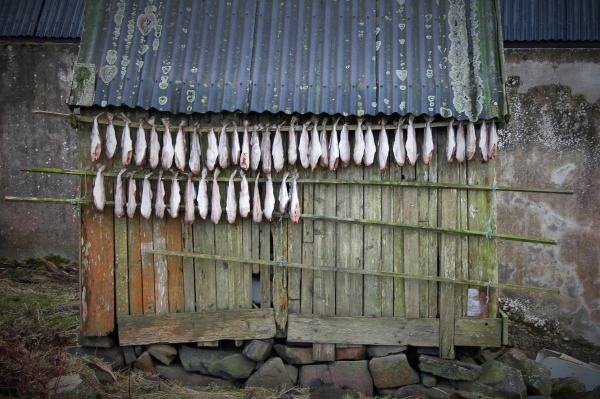Facts About Faroese cuisine
Faroese cuisine is a delightful blend of flavors deeply rooted in the Faroe Islands' rich maritime heritage. Given the archipelago's proximity to the ocean, it’s no surprise that lamb and fish dominate many traditional dishes. Unique offerings include skerpikjøt (wind-dried mutton), a variety of seafood, whale meat, blubber, garnatálg (a type of fat used in cooking), Faroese puffins, and hearty potatoes. Fresh vegetables, however, are somewhat rare.
One defining feature of Faroese food is its traditional preservation methods, such as brining, drying, and maturing meat and fish. These techniques give rise to specialties like ræstkjøt (fermented lamb) and ræstur fiskur (fermented fish), both characterized by their distinct, rich flavors.
Lamb remains a cornerstone of the local diet, but over time, tastes have shifted towards more European norms. This shift means that people now consume more vegetables and less fish than in the past. While fresh and fermented lamb meat remain cherished, younger generations are increasingly moving away from traditional meat products like sausages.
Fish dishes, featuring haddock, plaice, halibut, herring, and shrimp—all sourced from the bountiful North Atlantic Ocean—are staples of Faroese cuisine. Sheep are the primary source of traditional meat, with skerpikjøt being a particularly prized delicacy. Game, especially seabirds, also finds its place in Faroese kitchens.
A unique and somewhat controversial aspect of Faroese cuisine is the consumption of pilot whale meat and blubber. These have cultural significance and are prepared in various ways, though concerns about contamination have led to recommendations to limit their consumption.
The Faroe Islands also boast a proud tradition of beer brewing, with the oldest brewery, Föroya Bjór, established in 1888.
In terms of imported foods, British favorites like fish and chips and chocolate are quite popular. Fresh lamb meat is scarce in supermarkets, as most sheep are raised by families for personal use. Instead, pork, veal, chicken, and turkey are imported, along with dairy products, fruits, and vegetables. In 2011, the Faroes imported a substantial amount of food, underscoring the islands' reliance on imports to meet their dietary needs.
